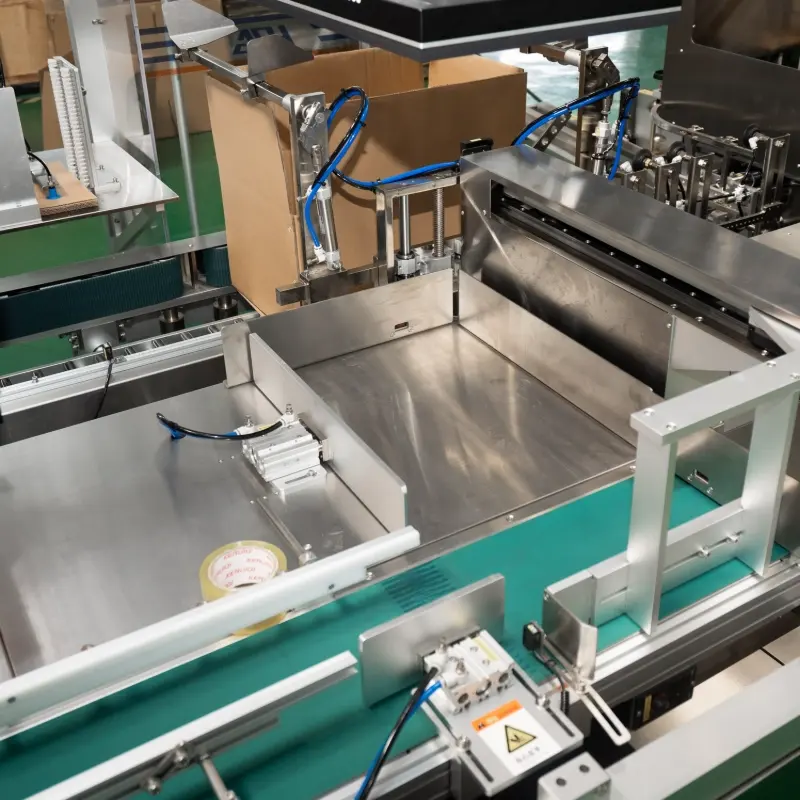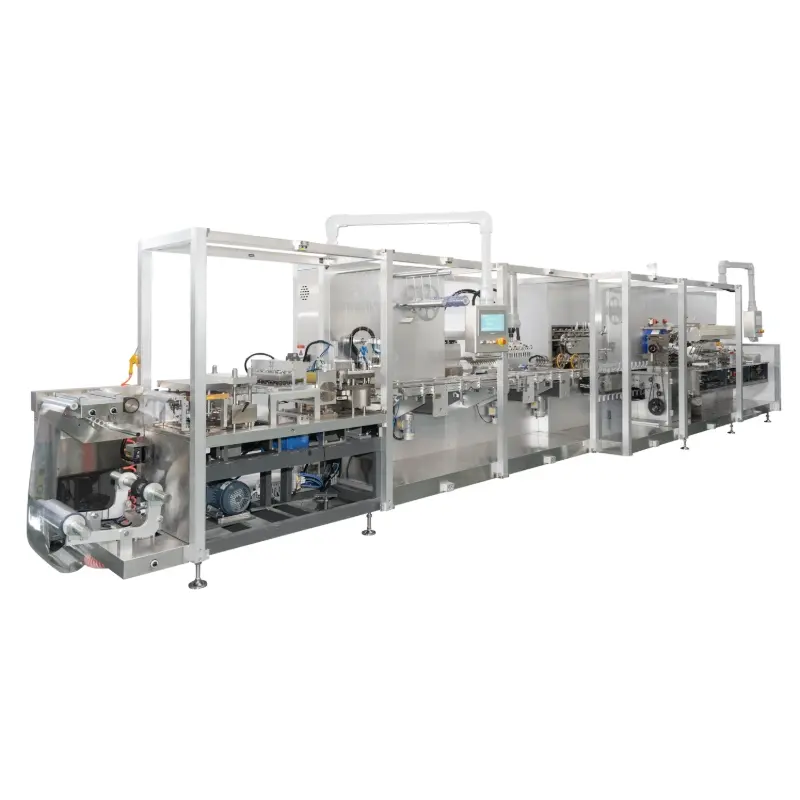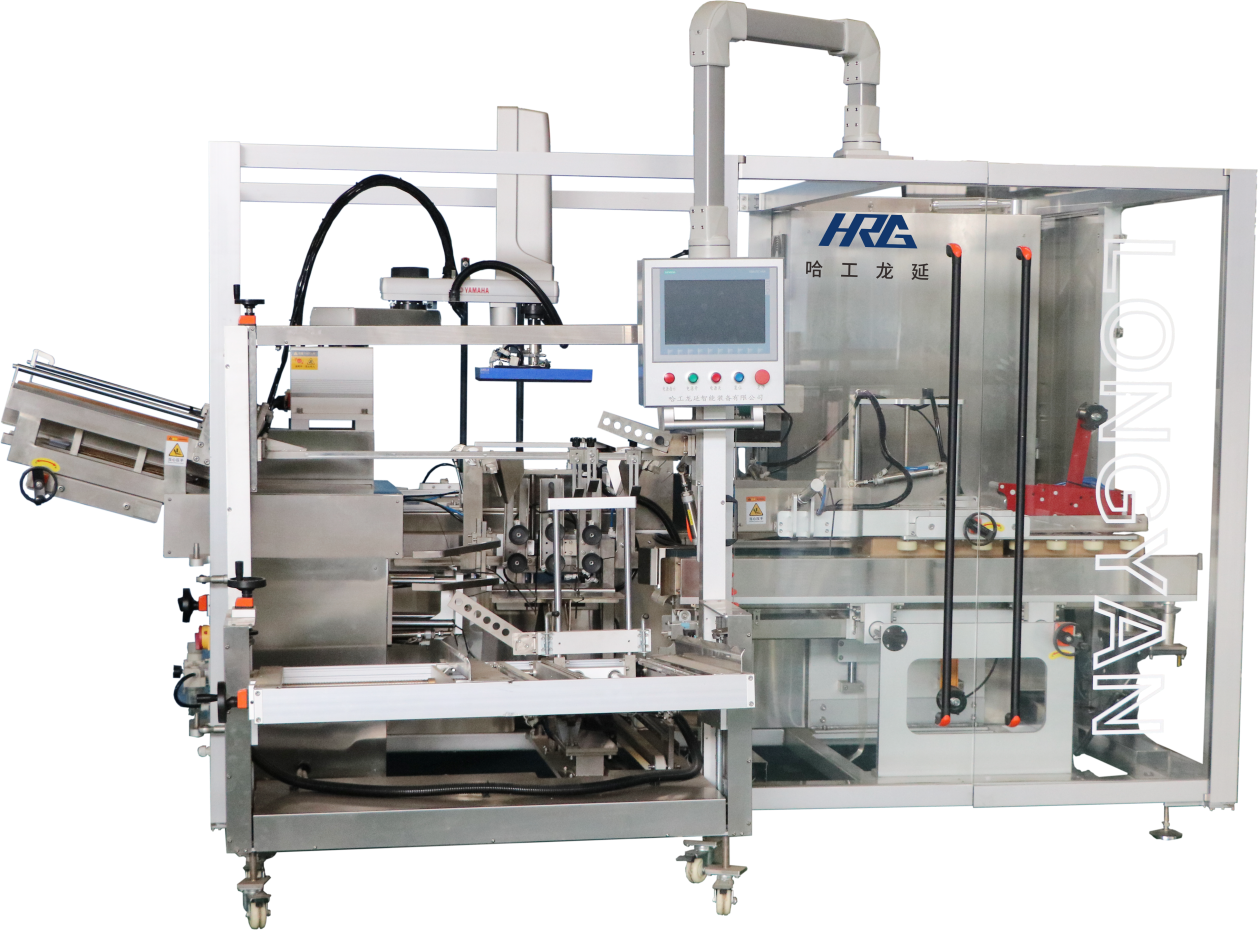How Can Case Packers Revolutionize Your Automated Packaging Process?
Release time: 2025-09-16
Table of Contents
In today’s fast-paced manufacturing world, businesses are continually seeking ways to enhance operational efficiency, reduce costs, and improve productivity. One powerful solution is the use of case packers for automated packaging systems. These machines streamline the process of packing products into boxes or cases, offering numerous benefits across industries. From reducing labor costs to ensuring product consistency, case packers are revolutionizing the packaging process. This article will explore the functionality, types, and benefits of automated case packing systems.
What is a Case Packer and How Does It Revolutionize Packaging?
A case packer is an automated machine designed to package products into cases (or cartons) for transportation or retail sale. The machine can handle a wide range of products, including consumer goods, pharmaceuticals, and food items. It automates key tasks such as product orientation, case forming, loading, sealing, and labeling, drastically reducing manual labor and improving efficiency.
How Case Packers Work: The system typically consists of conveyors, robotic arms, and sensors that work in tandem to load products into pre-formed cases. Once the products are positioned correctly, the case is sealed and labeled, making it ready for shipment.
Types of Case Packers: Vertical vs. Horizontal Systems
There are two primary types of automated case packers: vertical and horizontal.
Vertical Case Packers
Vertical case packers are ideal for high-speed packaging in industries where products are compact and can be stacked upright. This system is great for packaging bottles, cans, and smaller items. The vertical design minimizes floor space and can handle a variety of products efficiently.
Horizontal Case Packers
Horizontal systems, on the other hand, are better suited for larger items or irregularly shaped products that need to be oriented flat. These machines generally offer greater flexibility in terms of case sizes and product dimensions, making them suitable for industries like food processing and retail.
How Case Packers Work in Automated Packaging Systems
The operation of a case packer in an automated system involves several key steps:
Product Feeding and Orientation
Products are fed into the system through conveyors. Orientation mechanisms ensure that each product is correctly positioned for efficient packing. This step reduces product damage and ensures uniformity.
Case Formation and Product Loading
Once oriented, the case packer forms the packaging cases and places the products into them. Depending on the system, this can include automated folding, closing, and sealing of cases.
Sealing, Labeling, and Final Inspection
After loading, the system seals the case and applies labels. Some systems also include a final inspection process to ensure that the packaging meets quality standards, such as the correct number of items and proper sealing.
Benefits of Using Case Packers in Automated Packaging
Increased Productivity and Efficiency
Automated case packing systems run faster than manual labor, increasing the overall throughput of packaging lines. This high speed helps meet growing consumer demands and reduces bottlenecks in production lines.
Reduced Labor Costs
By automating the packaging process, businesses can significantly reduce their labor costs. Case packers eliminate the need for manual labor in tasks like loading, sealing, and labeling, resulting in fewer staff and lower wages.
Consistency and Accuracy in Packing
Automated systems ensure that every case is packed to the exact specifications. This consistency reduces the likelihood of human error and improves the overall quality of the packaging.
Space Efficiency and Flexibility
Case packers are designed to optimize floor space. Many systems, especially vertical case packers, are compact and can fit into smaller production areas. Moreover, they are adaptable and can be reconfigured for different product sizes or packaging needs.
Improved Product Handling and Safety
Automated case packers handle products more gently than manual laborers, which reduces the risk of damage. The system also improves workplace safety by reducing the risk of injury associated with repetitive manual labor.
Industries That Benefit from Automated Case Packers
Automated case packing systems are widely used in a variety of industries, including:
- Food and Beverage: Case packers efficiently handle high-volume products like bottled drinks, snack items, and frozen goods.
- Фармацевтика: In the pharmaceutical industry, automation ensures that products are packed with precision and in compliance with safety standards.
- Потребительские товары: Consumer products, including electronics, household goods, and personal care items, can be packed quickly and efficiently with case packers.
- E-commerce: As e-commerce grows, businesses that need to fulfill a large number of orders rely on case packers to streamline the process.
Why Invest in Case Packers for Your Packaging Line?
Investing in an automated case packing system is an essential step for businesses aiming to stay competitive in the modern marketplace. By reducing labor costs, improving productivity, and ensuring consistent quality, case packers can have a significant impact on your bottom line.
Whether you are looking to optimize an existing packaging line or introduce automation to your manufacturing process, a case packer offers a solution that will streamline your operations. Take the next step and explore how automated case packing systems can help you achieve greater efficiency and cost savings.
Ready to automate your packaging line? Contact us to learn more about the case packing solutions that can transform your production process. Explore our full range of automated packaging options to find the perfect fit for your needs.



